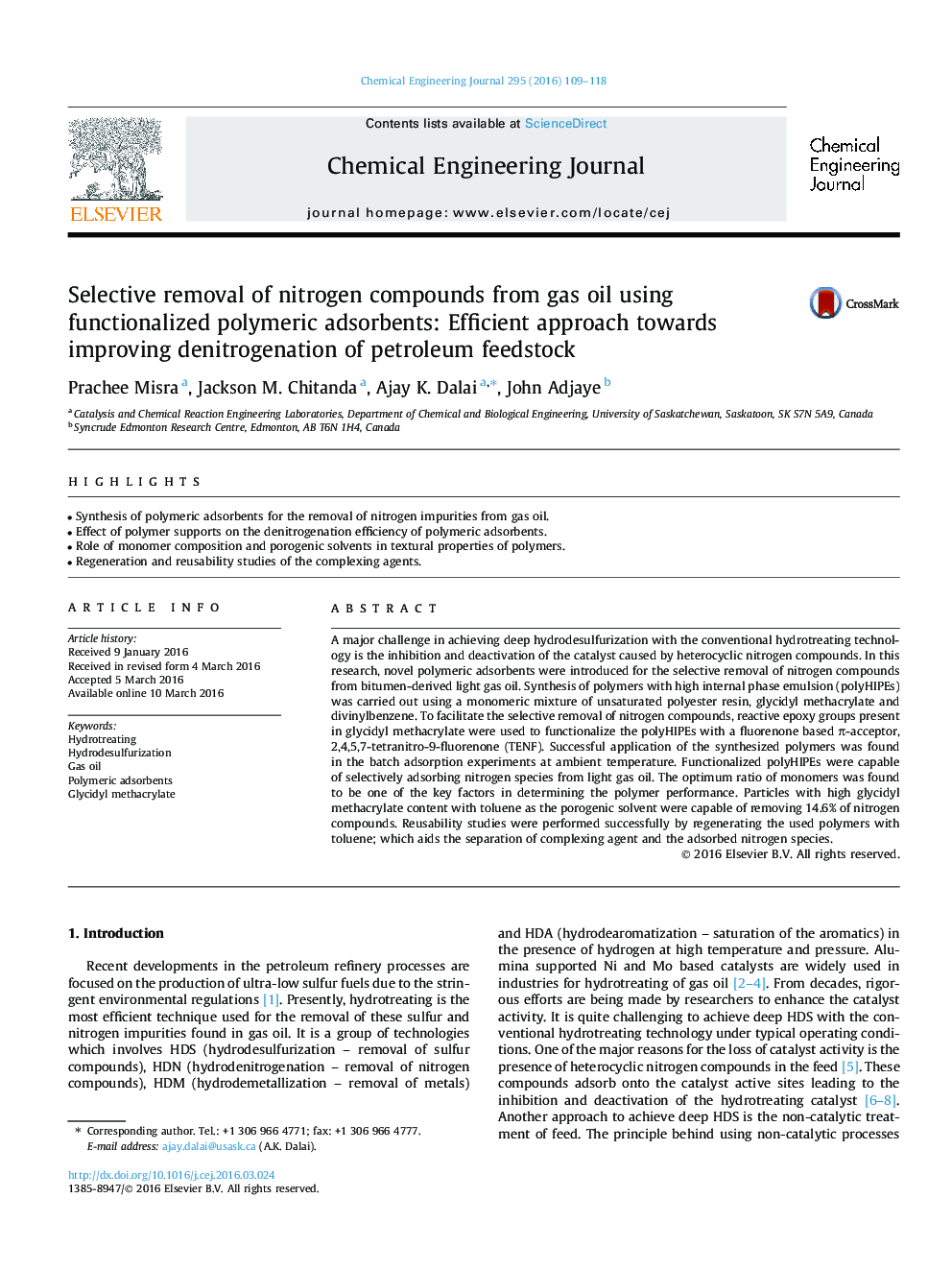| Article ID | Journal | Published Year | Pages | File Type |
|---|---|---|---|---|
| 145632 | Chemical Engineering Journal | 2016 | 10 Pages |
•Synthesis of polymeric adsorbents for the removal of nitrogen impurities from gas oil.•Effect of polymer supports on the denitrogenation efficiency of polymeric adsorbents.•Role of monomer composition and porogenic solvents in textural properties of polymers.•Regeneration and reusability studies of the complexing agents.
A major challenge in achieving deep hydrodesulfurization with the conventional hydrotreating technology is the inhibition and deactivation of the catalyst caused by heterocyclic nitrogen compounds. In this research, novel polymeric adsorbents were introduced for the selective removal of nitrogen compounds from bitumen-derived light gas oil. Synthesis of polymers with high internal phase emulsion (polyHIPEs) was carried out using a monomeric mixture of unsaturated polyester resin, glycidyl methacrylate and divinylbenzene. To facilitate the selective removal of nitrogen compounds, reactive epoxy groups present in glycidyl methacrylate were used to functionalize the polyHIPEs with a fluorenone based π-acceptor, 2,4,5,7-tetranitro-9-fluorenone (TENF). Successful application of the synthesized polymers was found in the batch adsorption experiments at ambient temperature. Functionalized polyHIPEs were capable of selectively adsorbing nitrogen species from light gas oil. The optimum ratio of monomers was found to be one of the key factors in determining the polymer performance. Particles with high glycidyl methacrylate content with toluene as the porogenic solvent were capable of removing 14.6% of nitrogen compounds. Reusability studies were performed successfully by regenerating the used polymers with toluene; which aids the separation of complexing agent and the adsorbed nitrogen species.
